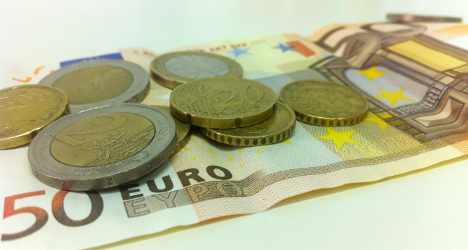The official Istat data agency said that the economy shrank by 0.2 percent in the quarter, amid recent indicators that the recession is easing.
Economists polled by Dow Jones Newswires had forecast a 0.4-percent quarterly drop.
The latest shrinkage follows a 0.6-contraction in the first three months.
"In the third and fourth quarters we may at last see the GDP slip into the positive and be able finally to say the recession is over," Italy's Minister of Labour Enrico Giovannini said in a radio interview on Tuesday.
The International Monetary Fund and the Bank of Italy have respectively forecast a 1.8 percent and 1.9 percent contraction of the economy in 2013, following a shrinkage of 2.4 percent in 2012.
Gross domestic product (GDP) shrank by 2.0 percent compared to output 12 months earlier and "acquired growth" was down 1.7 percent, Istat said.
Christian Schulz, Berenberg senior economist, said the 0.2 percent second quarter decline was "the mildest contraction since the start of the recession" in the third quarter of 2011.
"Italy is still likely to be the worst performing large European economy for a third successive quarter …but the worst of the crisis is over and Italian GDP should be growing again before the end of the year, backed by fading austerity and an export-driven recovery," he said.
In data supporting hopes hopes for an economic reprieve, the agency said industrial output in the country increased in June, with production up 0.3 percent compared to May.
Giovannini said there was "increasing optimism among families, greater confidence among businessmen and more orders on the domestic market. The desire to overcome the recession is becoming ever more concrete."
Despite the good news, the economy remains at risks from the volatile political situation following former premier Silvio Berlusconi's definitive conviction for tax fraud.
The furious reaction from Berlusconi and his People of Freedom party (PDL) following Thursday's supreme court ruling has raised concerns for the stability of Prime Minister Enrico Letta's grand coalition government and the country's economic recovery.



 Please whitelist us to continue reading.
Please whitelist us to continue reading.
Member comments